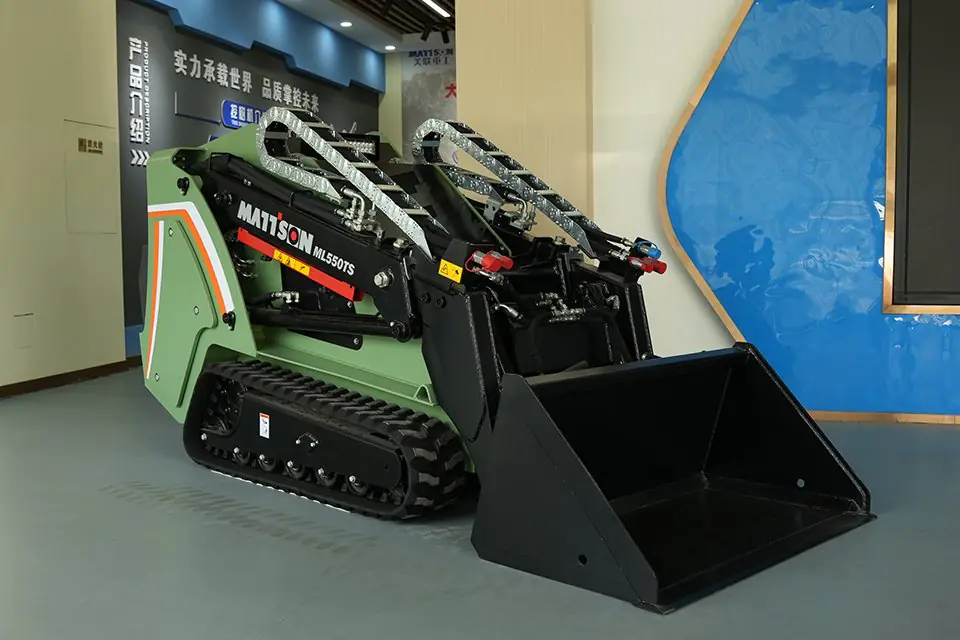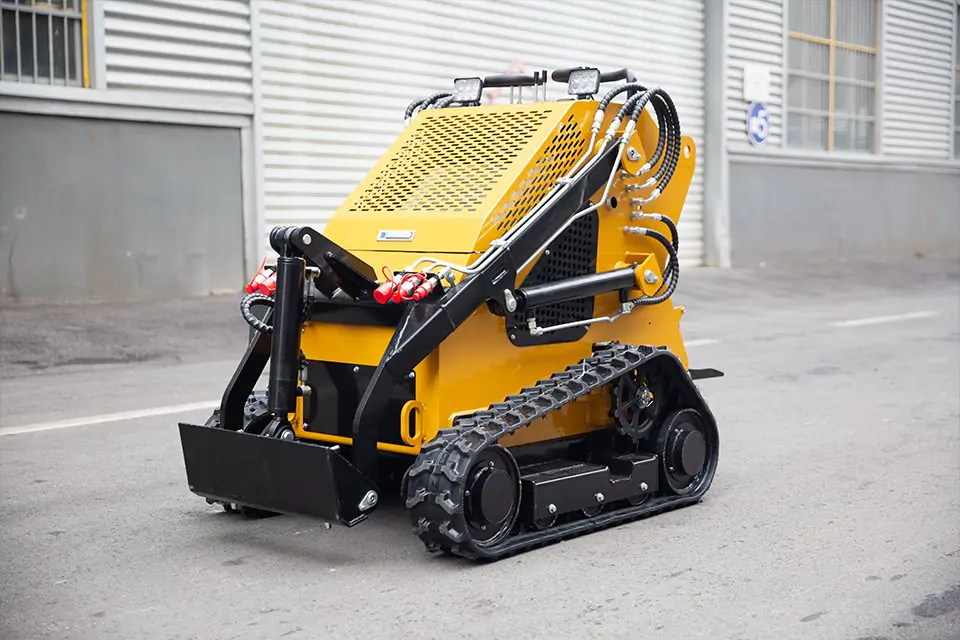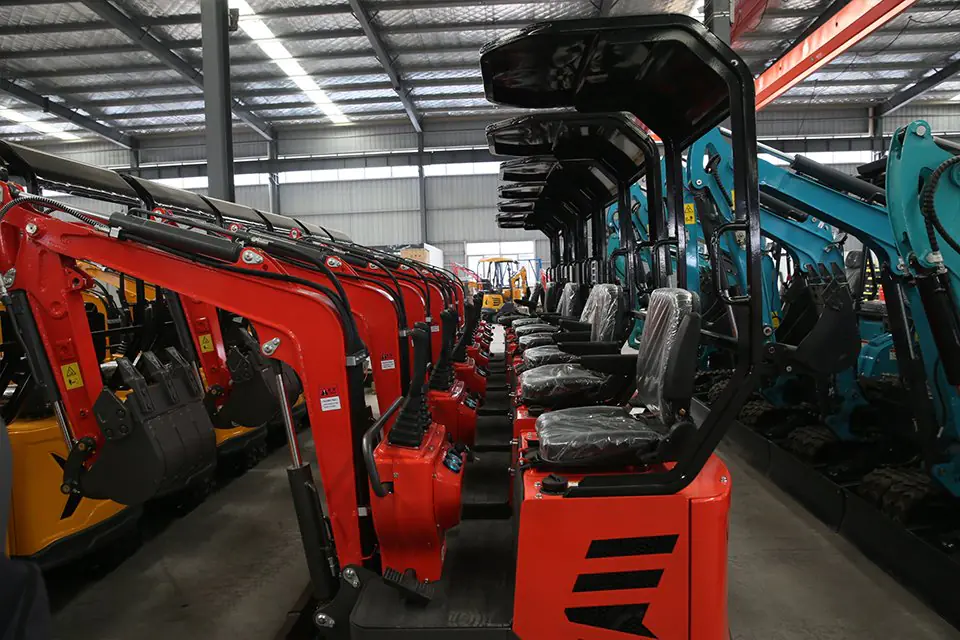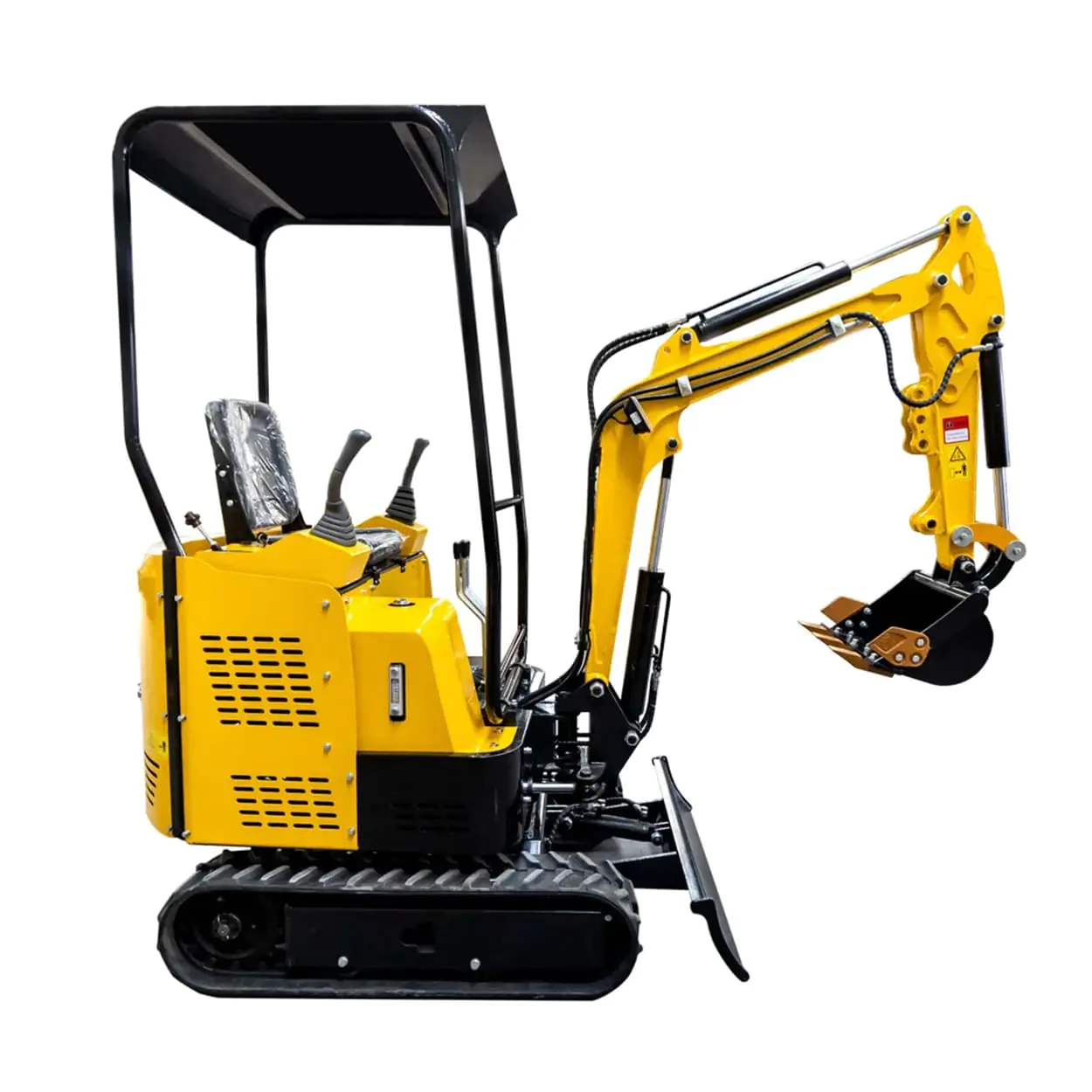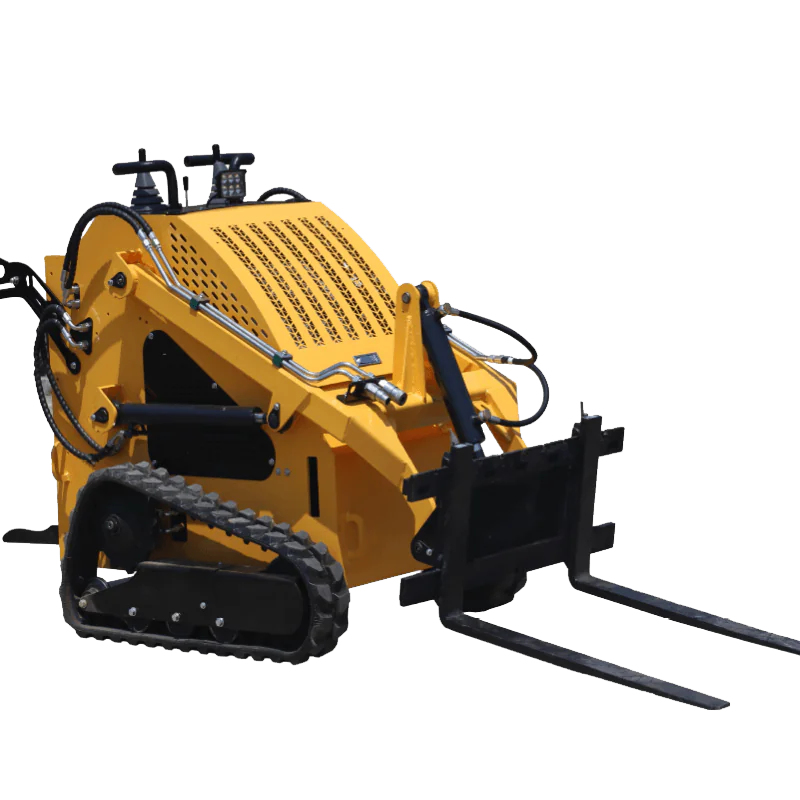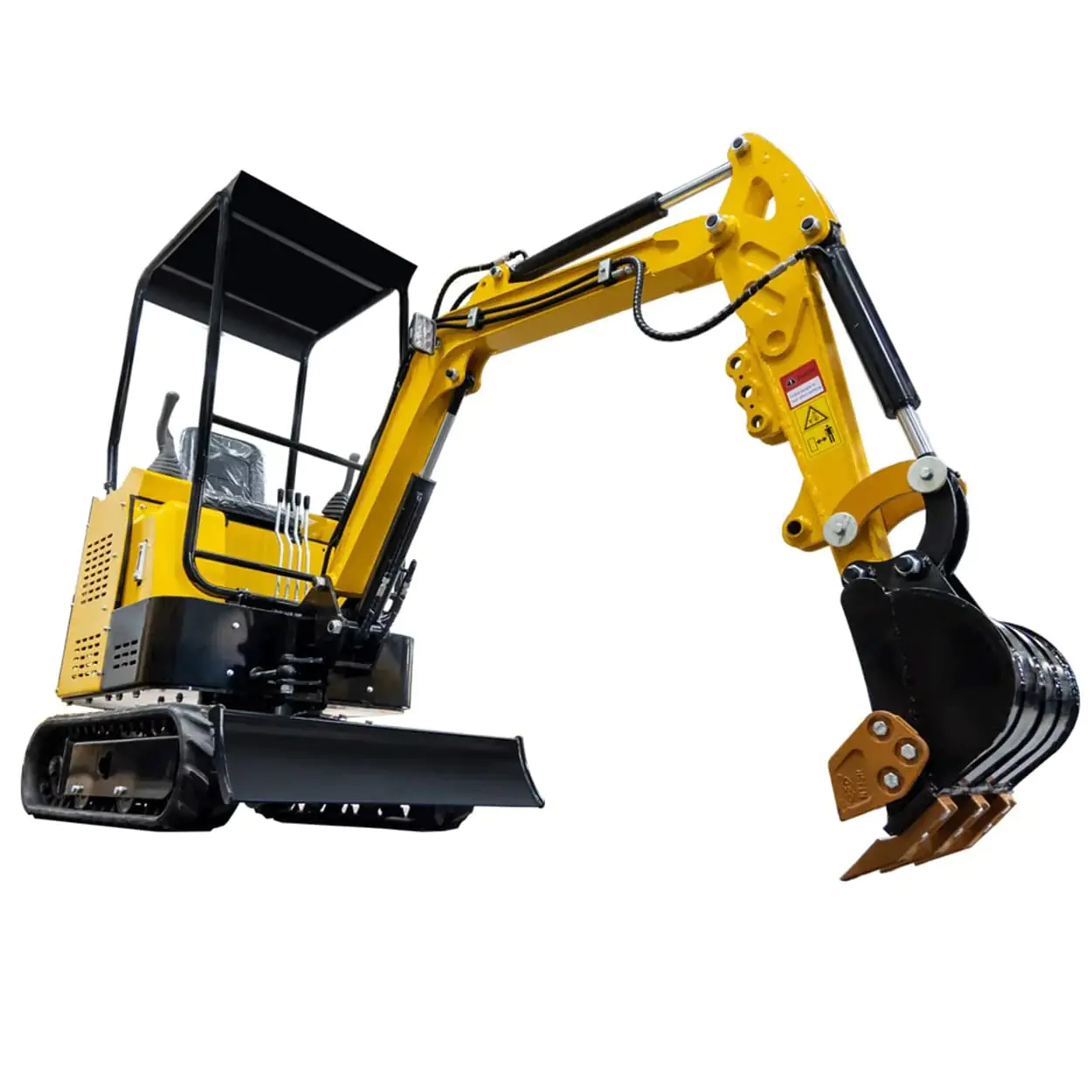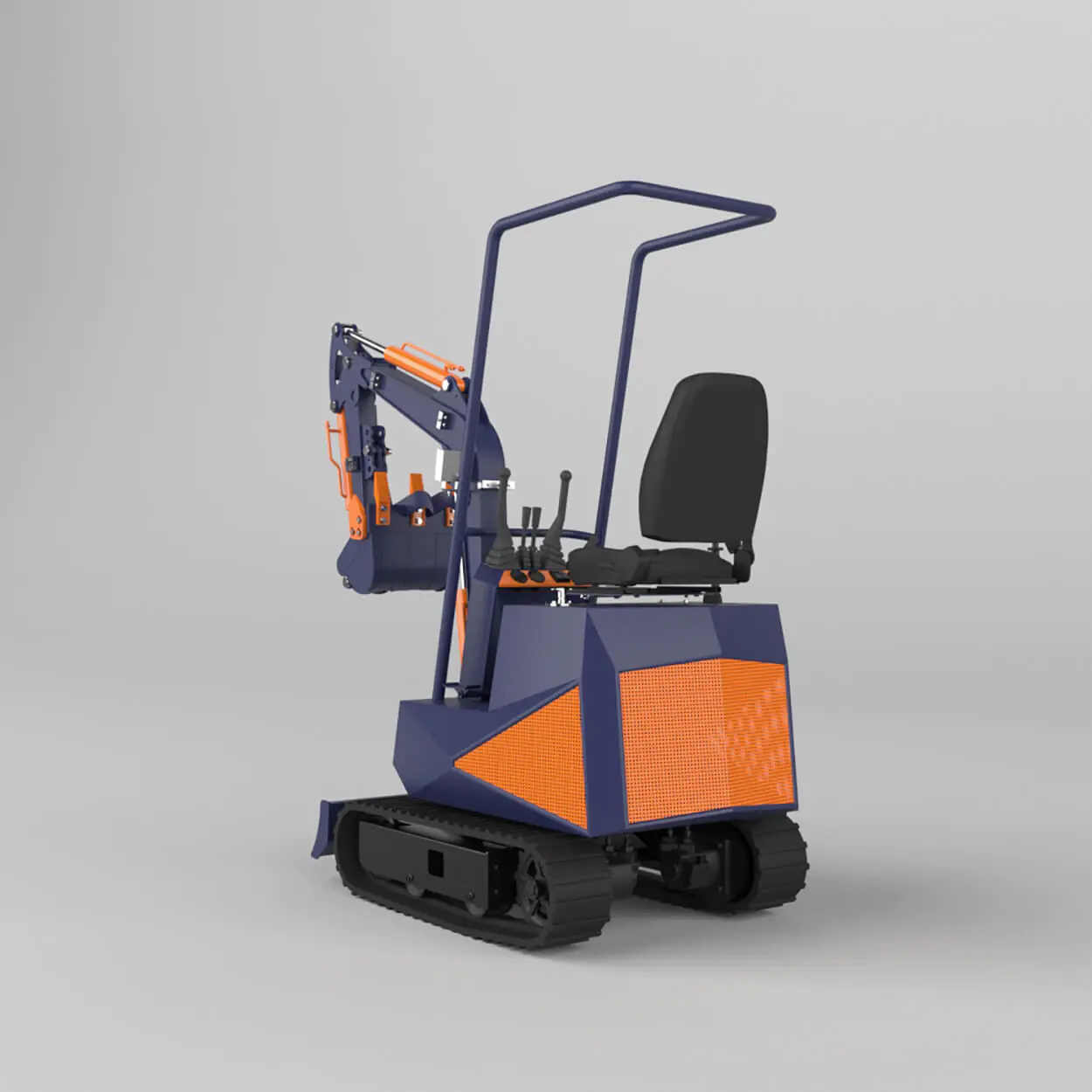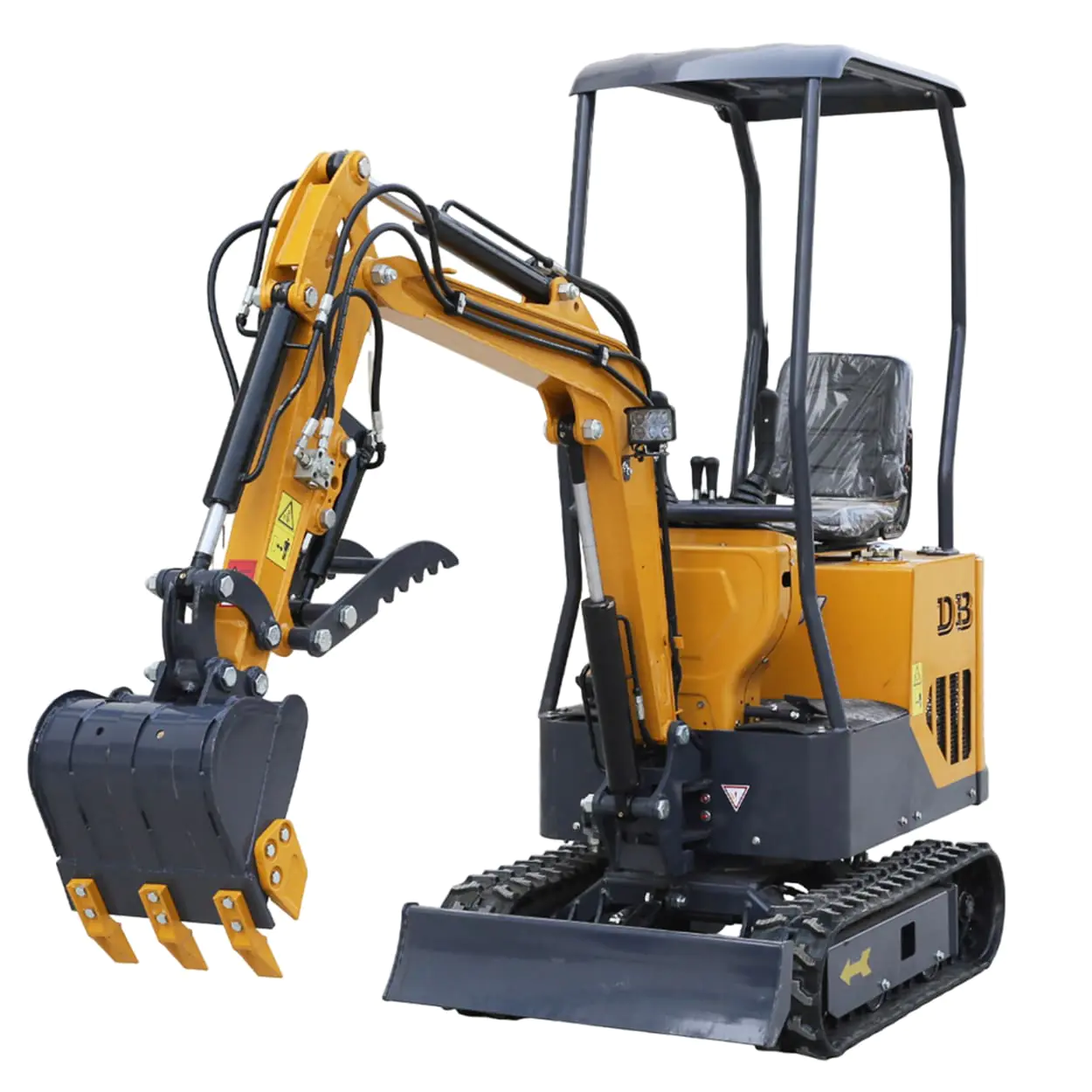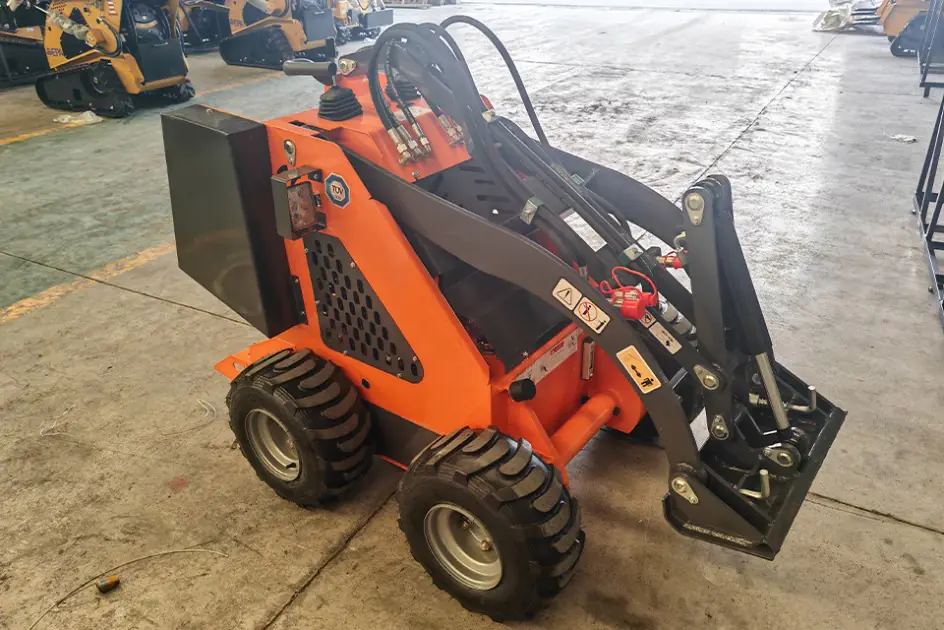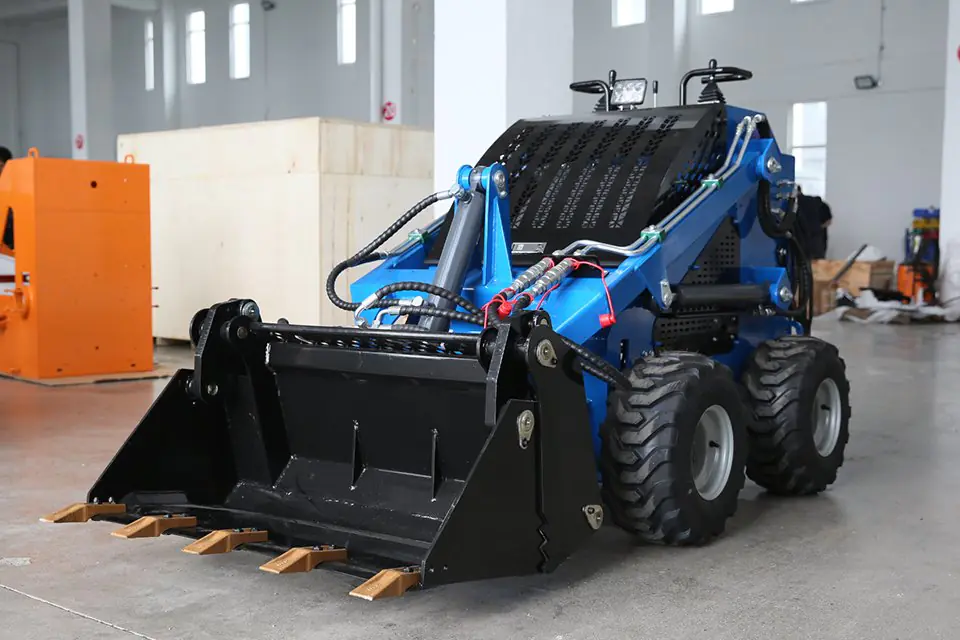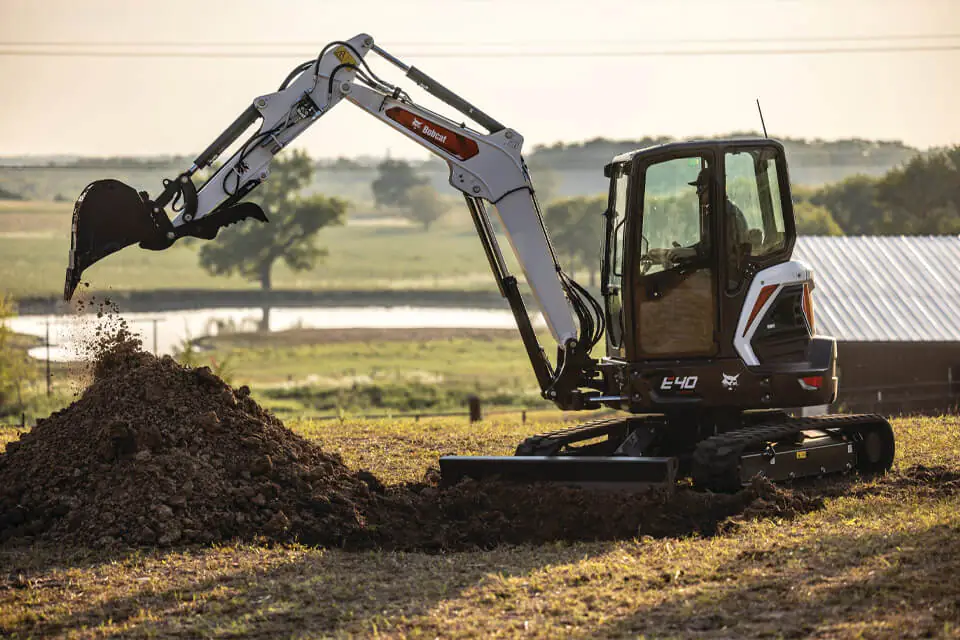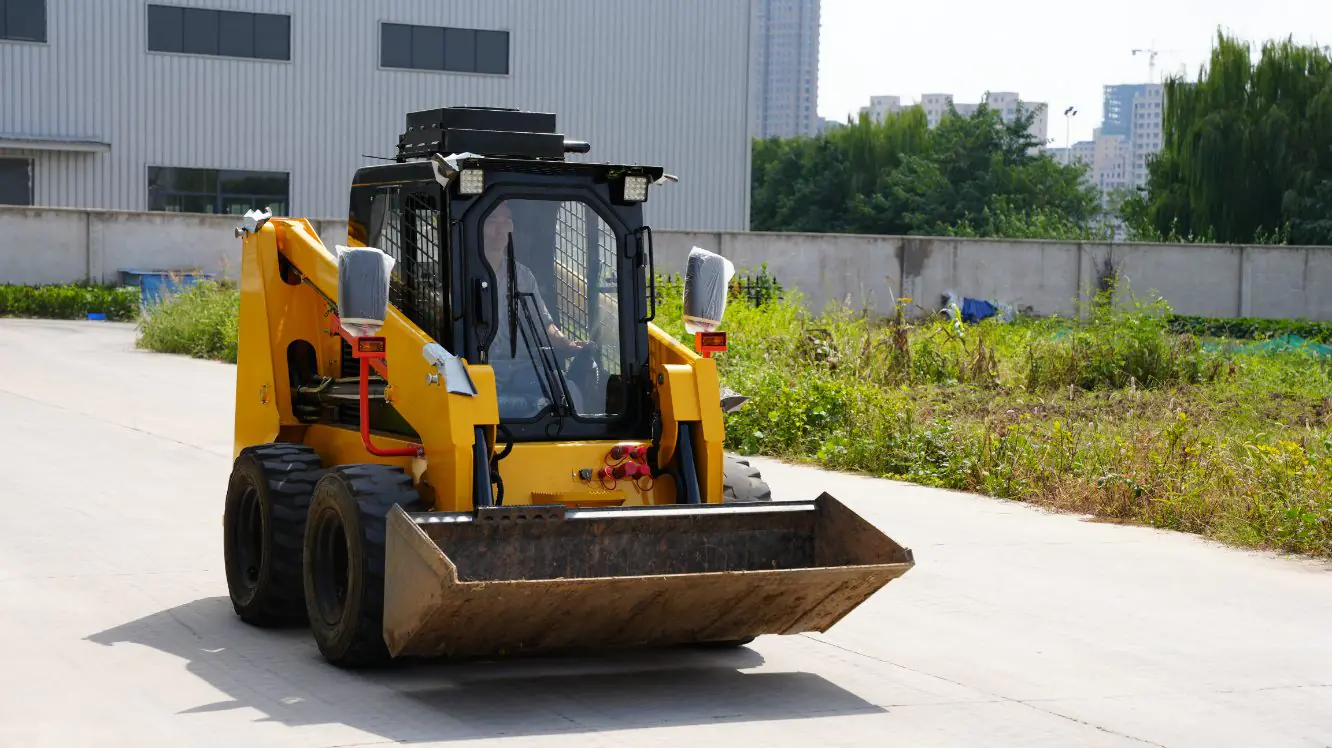Operating a mini excavator can seem daunting at first, but with the right knowledge and guidance, anyone can learn to operate a mini excavator efficiently and safely. This comprehensive guide will provide you with essential mini excavator operating tips, helping you become familiar with the machine and master its controls. Whether you’re tackling a landscaping project at home or working on a construction site, these tips will ensure you get the most out of this versatile piece of equipment.
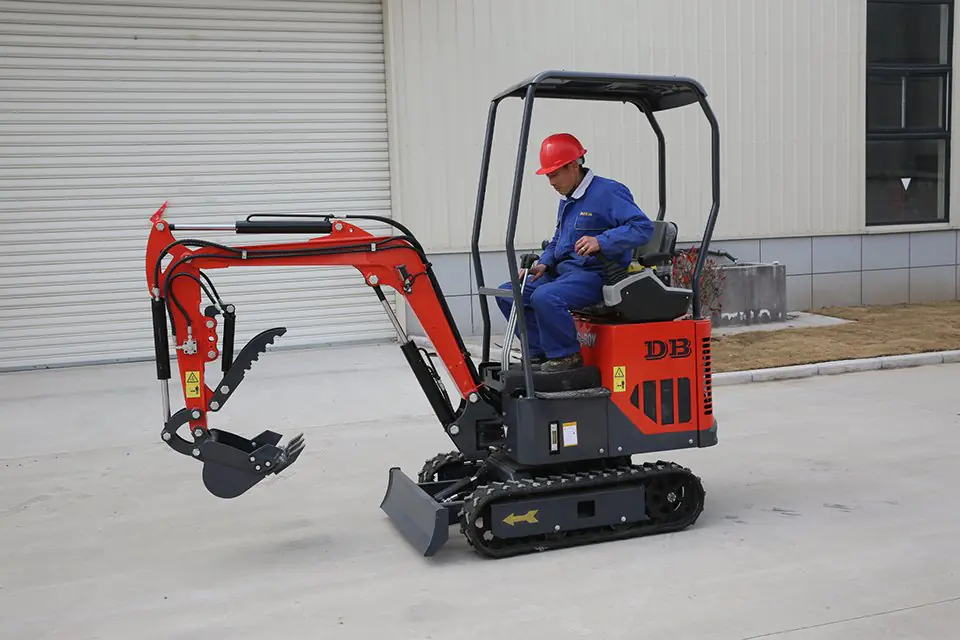
Image: 1.2 Ton (2500 Lb) Mini Excavator
What Is a Mini Excavator and Why Choose One?
A mini excavator is a piece of construction equipment that is smaller than a standard excavator. These compact machines are designed to operate in tight spaces where larger equipment can’t maneuver. Mini excavators can help with various tasks like digging, trenching, demolition, and landscaping. Their compact size makes them ideal for projects in urban areas or residential neighborhoods where space is limited.
Compared to a standard excavator, mini excavators offer increased versatility and ease of operation. They’re also more cost-effective, both in terms of initial investment and operational costs. If you’re considering equipment for your next project, a mini excavator may be the perfect solution.
Understanding the Controls: How to Operate a Mini Excavator
Before you operate a mini excavator, it’s crucial to become familiar with the machine’s controls and how to operate them. Familiarity with the controls ensures safety and efficiency on the job site.
Getting into the Cab
Access the cab safely by maintaining three points of contact. Once inside, adjust the seat and controls to suit your comfort.
Joystick Controls
The mini excavator features two joystick controls:
- Left Joystick: Controls the swing and the boom. Pushing it forward lowers the boom, pulling it back raises the boom. Moving it left or right swings the upper part of the machine 360 degrees.
- Right Joystick: Controls the stick and bucket. Pushing it forward extends the stick outward, pulling it back brings the stick inward. Moving it left or right curls or uncurls the bucket.
Understanding these joystick controls is essential to safely operate the machine.
Pedals and Levers
The foot pedals and hand levers control the tracks and attachments:
- Foot Pedals: Operate auxiliary functions like the hydraulic thumb or other attachments.
- Hand Levers: Control the movement of the machine. Pushing both levers forward moves the machine forward, pulling them back moves it backward. To turn, push one lever more than the other.
Throttle and Engine Speed
Adjust the throttle to control the engine speed. Higher engine speeds are necessary for heavy-duty tasks, while lower speeds are suitable for precise movements.
Safety Tips for Operating a Mini Excavator
Operating heavy machinery like a mini excavator requires adherence to safety protocols.
Pre-Operation Inspection
- Check Fluid Levels: Ensure lubricant and coolant levels are adequate.
- Inspect for Leaks: Look for any fluid leaks or oil pressure issues.
- Examine for Damage: Identify any loose or damaged parts.
On the Job Site
- Clear the Area: Before beginning work, ensure the work zone is free of obstructions and personnel.
- Use Seat Belt: Always wear your seat belt while operating the machine.
- Awareness: Stay vigilant of your surroundings, especially in tight spaces.
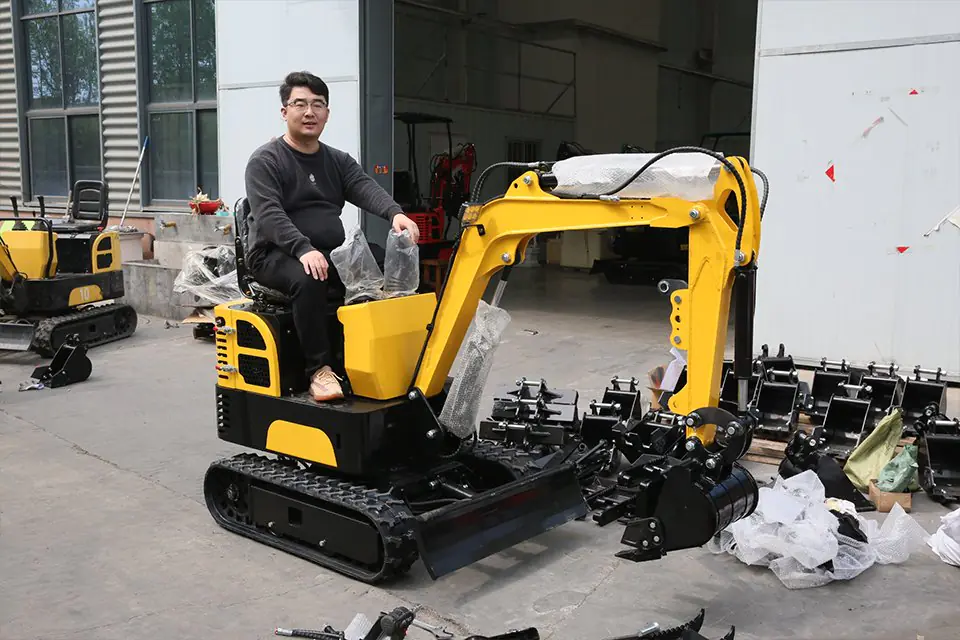
Tips for Operating a Mini Excavator in Tight Spaces
Mini excavators are ideal for tight spaces, but operating in confined areas requires skill.
- Plan Your Movements: Before moving, plan your path and be mindful of obstacles.
- Use Slow Movements: Operate the machine slowly to maintain control.
- Positioning: Keep the boom and bucket curl close to the machine to reduce the swing radius.
Should You Rent a Mini Excavator or Buy One?
Deciding whether to rent a mini excavator or purchase one depends on your needs.
- Renting: Ideal for short-term projects. Equipment rental companies often provide training and support.
- Buying: Suitable for long-term or frequent use. Investing in your own machine can be cost-effective over time.
Consider the 0.8 Ton Mini Excavator if you’re looking to purchase a reliable and compact machine.
Tips for Operating a Mini Excavator Like a Pro
Enhance your skills with these additional tips:
- Practice: Find a clear area to try the machine and get comfortable with the controls.
- Smooth Movements: Push or pull the controls gently for precise operation.
- Stay Alert: Always be aware of the machine’s movements and your surroundings.
Common Attachments and Their Uses
Enhance the versatility of your mini excavator with various attachments:
- Buckets: For digging and trenching.
- Augers: For drilling holes.
- Thumbs: For grasping objects.
Attachments can transform your mini excavator into a multi-purpose tool, increasing productivity on the job site.
Maintenance and Inspection: Keeping Your Mini Excavator in Top Shape
Regular maintenance ensures your mini excavator operates efficiently.
- Daily Checks: Inspect the machine for fluid leaks, loose or damaged parts, and check lubricant and coolant levels.
- Scheduled Service: Follow the manufacturer’s maintenance schedule for oil changes and part replacements.
- Cleanliness: Keep the machine clean to prevent dirt buildup, which can cause wear.
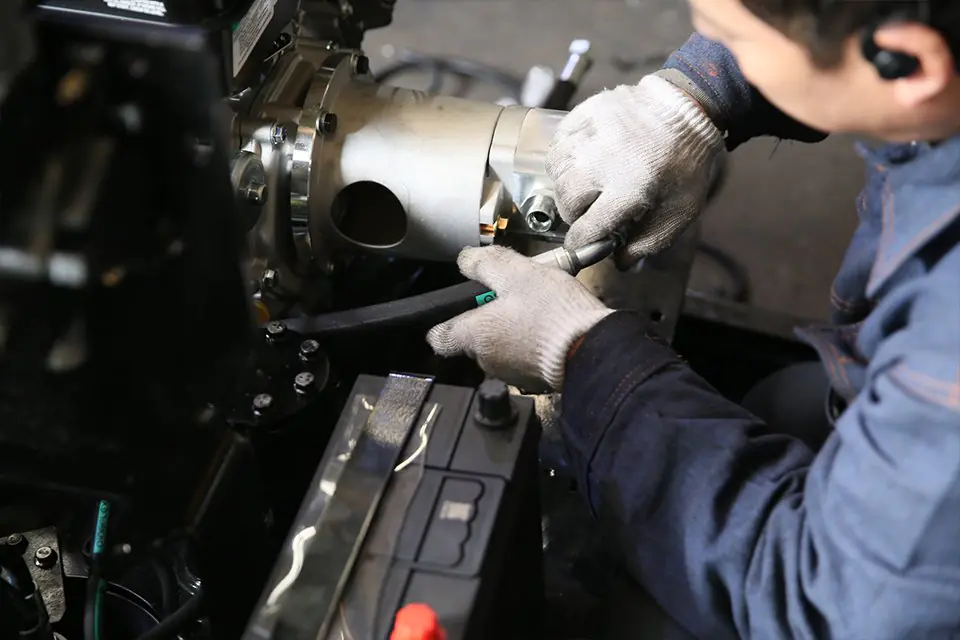
Operating the Boom and Bucket
Mastering the boom and bucket is crucial.
- Control the Boom: Use the left joystick to raise or lower the boom.
- Move the Stick: The right joystick extends or retracts the stick.
- Use the Bucket: Curl or uncurl the bucket to scoop or dump materials.
Understanding these movements allows for efficient digging and material handling.
Navigating the Job Site Safely
Safety is paramount when moving around the job site.
- Monitor Engine Speed: Adjust the throttle based on the task.
- Stay Grounded: Keep the machine stable, especially when lifting heavy loads.
- Communicate: Use signals or radios to communicate with ground personnel.
Conclusion
Learning how to operate a mini excavator effectively requires practice and attention to detail. By familiarizing yourself with the controls, following safety guidelines, and maintaining your machine, you can handle any project with confidence.
Consider exploring our range of mini excavators:
- 2200 Lb Mini Excavator for compact projects.
- 2500 Lb Mini Excavator for versatile use.
Key Takeaways
- Understand the Controls: Familiarity with joystick, pedal, and lever controls is essential.
- Prioritize Safety: Always conduct pre-operation checks and follow safety protocols.
- Choose the Right Machine: Select a mini excavator that meets your project’s needs.
- Regular Maintenance: Keep your equipment in top condition to prevent downtime.
- Practice Makes Perfect: Spend time operating the machine to build confidence and skill.
By following these mini excavator operating tips, you’ll be well on your way to becoming a proficient operator, ready to tackle any project efficiently and safely.
